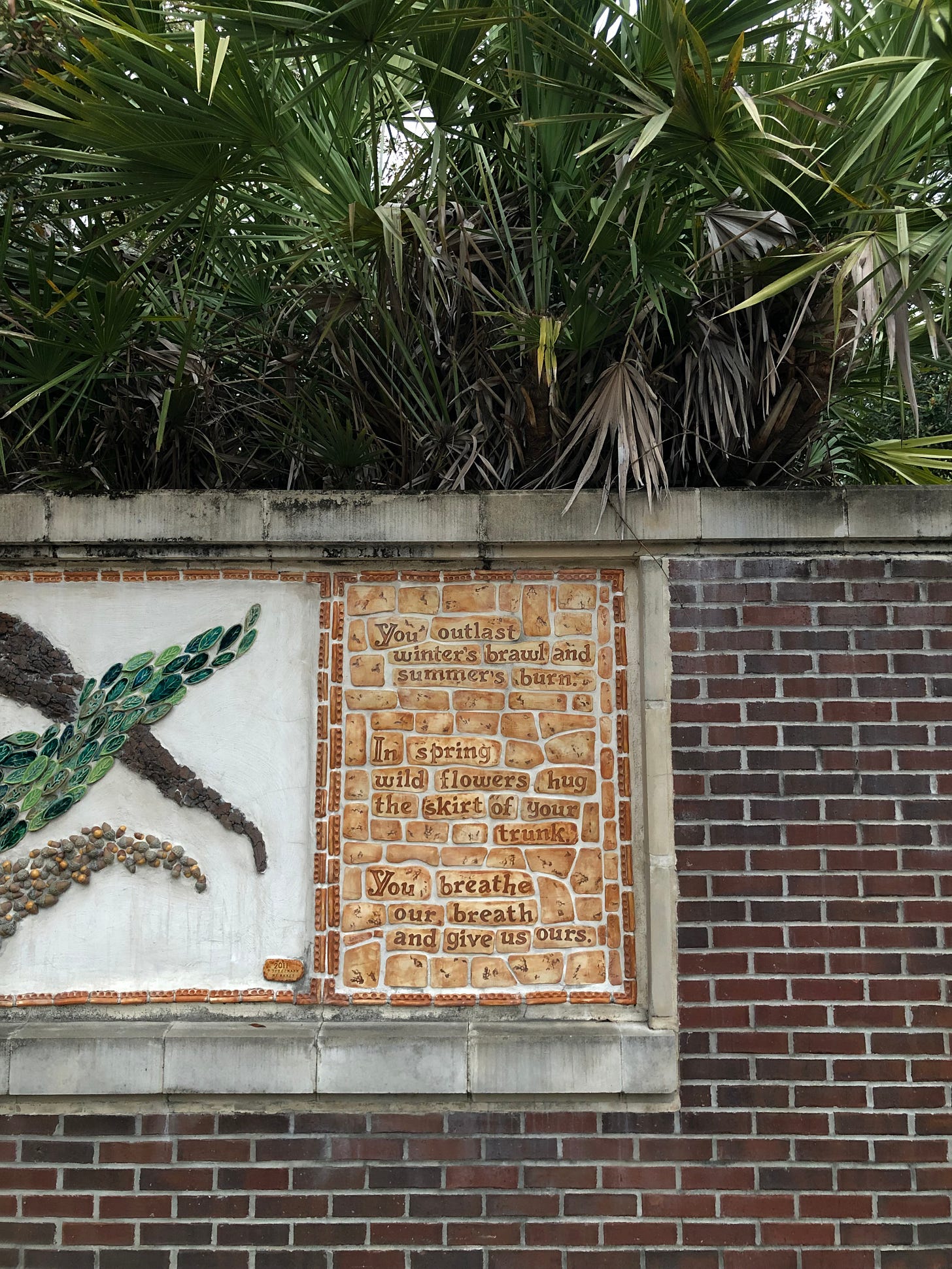Going Back to School as an Old Person (Again)
Reckoning with societal expectations and accepting myself fully as I am.
I’m in Tallahassee, Florida right now, sitting in a vegan coffee shop called All Saints Cafe. I never thought I’d be in Tallahassee, nor did I think I’d prefer the name “Tally” to Tallahassee, but I do. I’m supposed to be sitting in on classes and meeting other prospective students, but I am here, alone, which is, as they say, on brand for me.
The night before last I stayed with my friend Annalise, who I met years back in NYC, at an event called Bindercon. I’d gotten a scholarship to go there, and Stephanie Land was the keynote speaker. It was about five years ago, which feels unimaginable, that it was so long ago and yet not too long ago. Annalise didn’t have a child or a husband, two things she has now. And I didn’t have my MFA, or a book deal, two things I have now. It was wonderful to see her, and I was reminded of the gift of social media, connecting us from far away to people who feel kindred.
I am here in Tally because I’m going to live here. Once again, I am moving. In the pas…
Keep reading with a 7-day free trial
Subscribe to Gathering to keep reading this post and get 7 days of free access to the full post archives.





